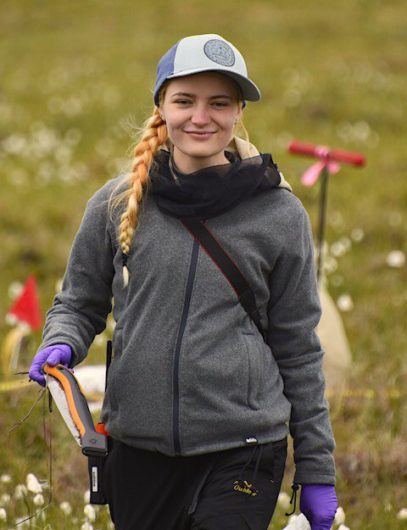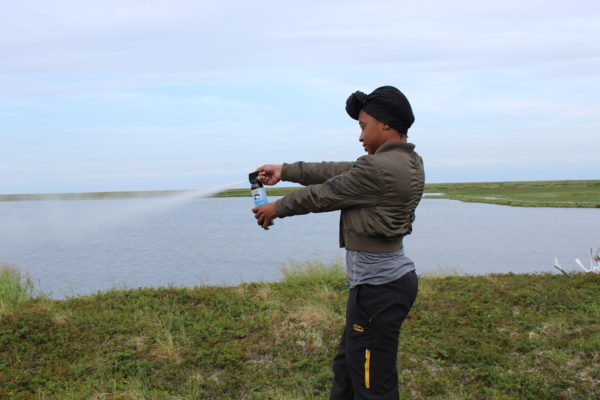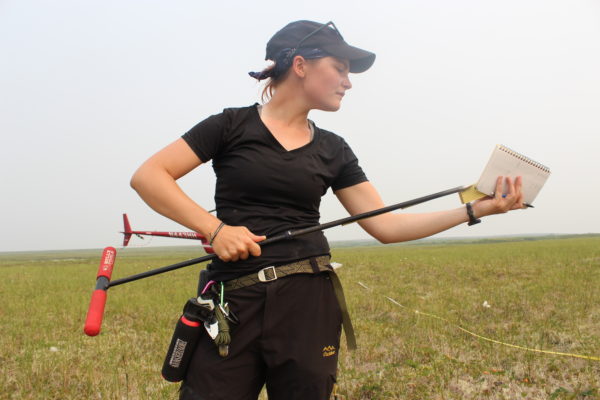
photo // John Schade
The ground of the tundra is almost as unpredictable as the weather. Just as the beating sun can turn into a screaming storm in under a minute, your feet go from the comfort of solid ground to being completely submerged in saturated mosses. As you walk, your ears are filled with the shrill sound of yelling mosquitoes and your sense of smell is overwhelmed by the sharp sent of ledum, a plant commonly known as tundra tea.
To some, this place may seem like an endlessly sprawling landscape of uncertainty. But to me, as a budding ecologist, it’s a paradise of wonder, fruitful with questions waiting to be answered. As you cross the ever-changing terrain, you can’t help but notice the jagged lines of charred ground, marking the boundaries of where fire consumed the earth. The transition to scarred ground gives way to changes in the composition of plants that dominate the land. In this, I found the inspiration I was searching for.
I wanted to understand the differences in the communities of plants that thrive in the areas undisturbed by fire and those still recovering from that trauma. What processes had the fire set into motion? How do its effects linger and affect the plants’ ability to grow? Can the fire’s effects be found in the availability of Nitrogen or the temperature of the soil? Does it dictate the moisture that can be cradled within the soil or did this moisture precede it, holding the authority to control how hot the flames could burn?
These days I’ve spent almost all of my waking hours searching for the details that may answer these questions. My body moves up and down the tundra, my fingers sift carefully through plants, my brain constantly spinning webs of thought sprouting from what I see and what I measure. When the day starts to die down and my body demands relief from the never setting sun, it’s time to head back to base camp. In the light of the early night, after we’ve all staggered back from our sites and into our common tent, we’re welcomed home by the steam of a warm meal. Despite the exhaustion on our faces, the air above our dinner table is filled with laughter and stories of the day’s adventures. In these moments, it is clear that we’ve grown from a group of scientist strangers to a family.
– Rhys MacArthur-Thompson, Hampshire College



